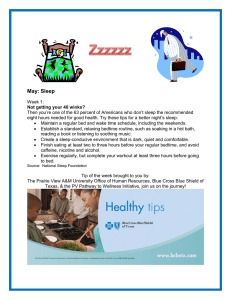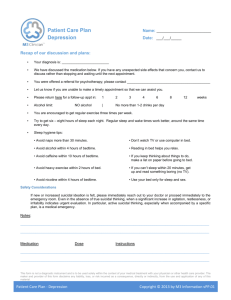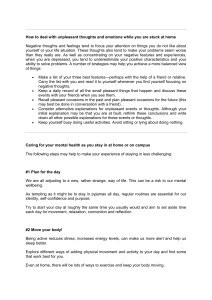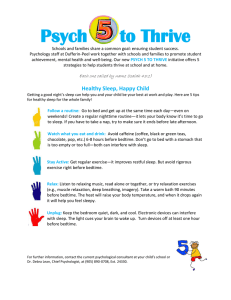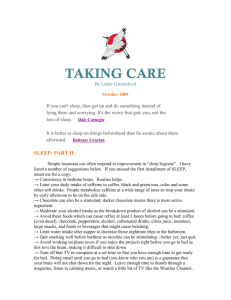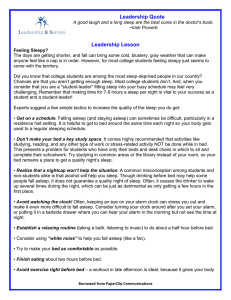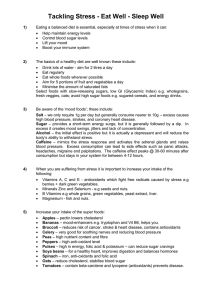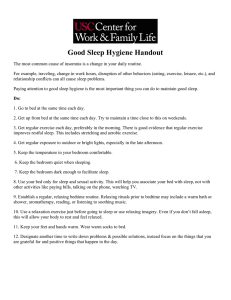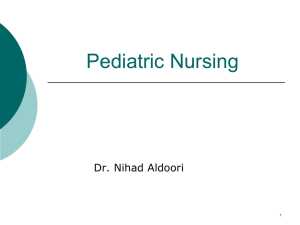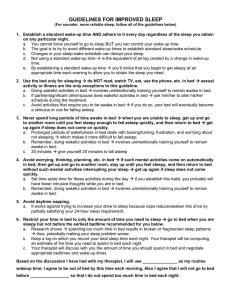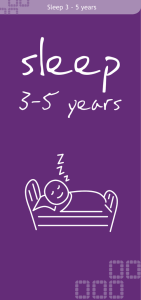Basic Sleep Strategies
advertisement
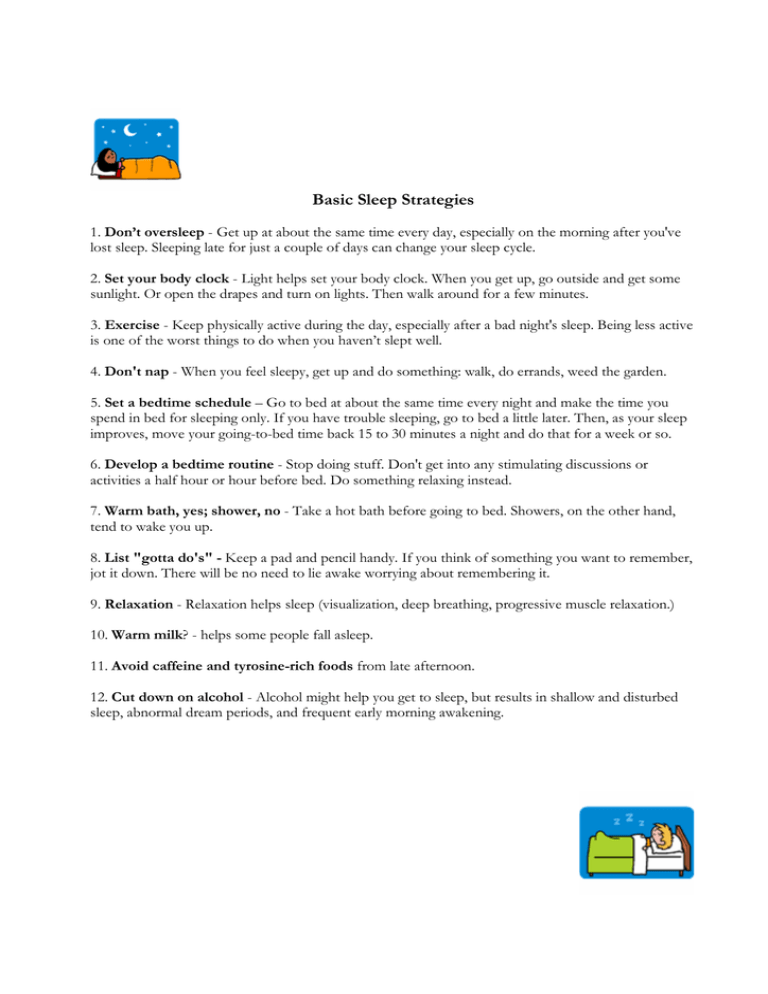
Basic Sleep Strategies 1. Don’t oversleep - Get up at about the same time every day, especially on the morning after you've lost sleep. Sleeping late for just a couple of days can change your sleep cycle. 2. Set your body clock - Light helps set your body clock. When you get up, go outside and get some sunlight. Or open the drapes and turn on lights. Then walk around for a few minutes. 3. Exercise - Keep physically active during the day, especially after a bad night's sleep. Being less active is one of the worst things to do when you haven’t slept well. 4. Don't nap - When you feel sleepy, get up and do something: walk, do errands, weed the garden. 5. Set a bedtime schedule – Go to bed at about the same time every night and make the time you spend in bed for sleeping only. If you have trouble sleeping, go to bed a little later. Then, as your sleep improves, move your going-to-bed time back 15 to 30 minutes a night and do that for a week or so. 6. Develop a bedtime routine - Stop doing stuff. Don't get into any stimulating discussions or activities a half hour or hour before bed. Do something relaxing instead. 7. Warm bath, yes; shower, no - Take a hot bath before going to bed. Showers, on the other hand, tend to wake you up. 8. List "gotta do's" - Keep a pad and pencil handy. If you think of something you want to remember, jot it down. There will be no need to lie awake worrying about remembering it. 9. Relaxation - Relaxation helps sleep (visualization, deep breathing, progressive muscle relaxation.) 10. Warm milk? - helps some people fall asleep. 11. Avoid caffeine and tyrosine-rich foods from late afternoon. 12. Cut down on alcohol - Alcohol might help you get to sleep, but results in shallow and disturbed sleep, abnormal dream periods, and frequent early morning awakening.
